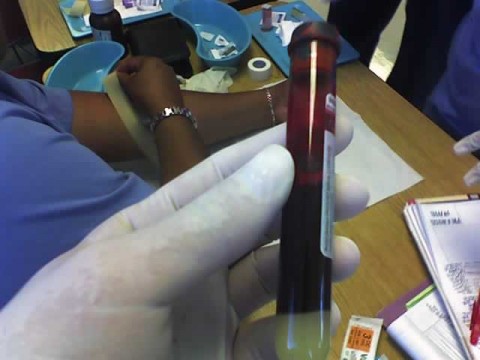Proper Prenatal-Care is Essential
Proper prenatal care is essential to the health and development of your baby, and there is a variety of optional prenatal tests available during the first trimester. At your first doctor visit after becoming pregnant, the doctor will run a variety of tests including your blood pressure and he’ll take a urine sample to check for blood sugar and he’ll also perform a pelvic exam. These are the first, and essential, tests. Other tests are optional, but they can be equally important.

1) Complete Blood Count
A complete blood count (CBC) test will give your doctor an important baseline on your health. A CBC shows the number and health of your red and white blood cells as well as the blood platelets.
2) Rh Factor and Blood Type
Knowing your blood type is important if you’re pregnant, but if you don’t know it your doctor will order a blood test to determine your blood test. If your blood type has the Rh antigen, then your blood is Rh-positive. Blood without the Rh antigen means the blood is Rh-negative. It is essential that the doctor know your Rh factor because there can be severe complications if the mother has Rh-negative blood and the fetus has Rh-positive blood. If the mother and fetus’ Rh factors are incompatible, the doctor will order a simple Rh immunoglobulin shot before and after delivery. This shot prevents any Rh factor complications.
3) Rubella
It is important for pregnant women to be protected against rubella. If you’re unsure if you’ve been vaccinated, your doctor may order a blood test to determine if you’re immune to rubella. If you’re not protected, and you come in contact with the disease, you could pass it on to your baby. Rubella can cause a variety of birth defects to the fetus. If you have not previously been vaccinated for rubella, your doctor may order a shot of immunoglobulin. This won’t prevent your contracting the disease, but it will reduce any symptoms and lessen the likelihood of any birth defects.
4) HIV Test
If there’s any doubt in your mind if you are HIV positive or not, having an HIV test early in your first trimester is important. HIV can be transmitted to the baby during the pregnancy, labor, delivery or even breastfeeding. If you are HIV positive, your doctor can take measures that will reduce the chances of your baby getting the disease from 25 percent to 2 percent. If antiretroviral therapy drugs are available, the mother can take these to suppress the HIV keeping the mother healthier for longer.
5) Hepatitis B
The Center for Disease Control has strongly suggested that every pregnant woman is tested for hepatitis b, but not all are. If you’re at risk for contracting hepatitis b, your doctor may order the test to see if you’re already infected. Hepatitis b can be passed on to the baby, so it is important for your doctor to know if you’re infected or not.
6) Syphilis